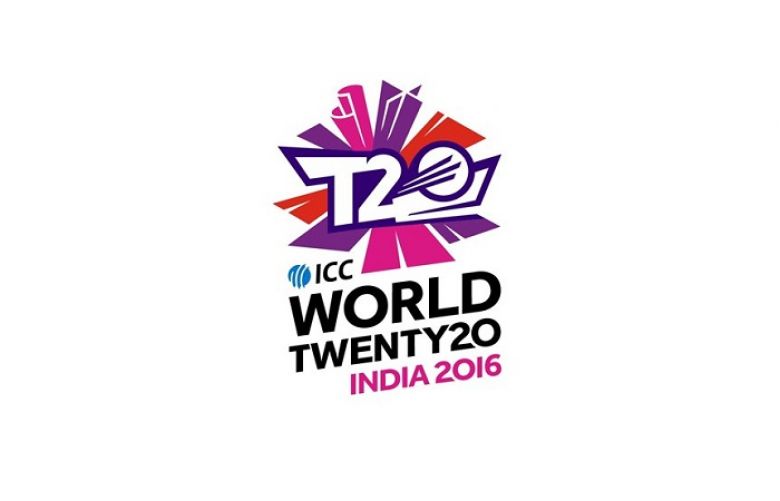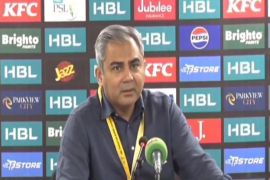After the West Indies’ dramatic victory over England in the final of cricket’s World Twenty20, AFP picks its best eleven of the tournament.
Jason Roy (England)
The dashing opener has come to exemplify the new form of fearless cricket that England showcased during the tournament. His willingness to go after the bowlers from the very first ball gave England match-winning platforms against South Africa and New Zealand. Although he perished with the second ball of the final, his natural self-confidence suggests the South Africa-born right-hander will bounce back quickly.
Mohammad Shahzad (Afghanistan)
The powerful opener endeared himself to fans with his chirpy demeanour and big-hitting as Afghanistan made World T20 history by winning their first-ever Super 10 match. The portly wicketkeeper constantly egged on his team-mates, delighting hordes of Afghans who cheered on their heroes’ aggressive and carefree brand of cricket. Shahzad’s 19-ball 44 during the team’s valiant chase against South Africa was particularly entertaining.
Virat Kohli (India)
The swashbuckling batsman confirmed his status as the hottest property in Indian cricket with three ice-cool half-centuries. After guiding India to victory over Pakistan with 55, Kohli’s stunning 82 against Australia propelled the hosts to the semi-finals. Then in the last-four clash with the West Indies, Kohli, 27, scored an unbeaten 89 to put his side in pole position, only for India’s bowling attack to falter.
Joe Root (England)
Despite the pain of losing the final, Root leaves India with his head held high after translating his undoubted class in Test cricket into the shortest format. His 54 off 36 balls in the final, which ensured England reached respectability, was his second half-century of the tournament. His first was an astonishing 83 off 44 balls against South Africa when England chased down a record target of 230. The part-time offbreak bowler even took two wickets in the final, including Chris Gayle.
Kane Williamson (New Zealand)
There were fears over how New Zealand would cope without recently-retired Brendon McCullum but Williamson proved an able replacement as skipper. The 25-year-old stamped his leadership credentials with inspired decision-making, including opting for three spinners in the shock win over India. He also scored 123 runs as he guided his side through the group stages unbeaten despite a nomadic travelschedule.
Marlon Samuels (West Indies)
He may have a knack of getting up people’s noses (as Shane Warne and Ben Stokes can attest) but there is no doubting his big-game temperament. Four years after his match-winning innings in the 2012 World T20 final, the 35-year-old’s unbeaten 85 in Sunday’s final was the cornerstone of the Windies’ victory over England. In the crucial group stage match against South Africa, Samuels also showed his cool head by top-scoring with 44.
Carlos Brathwaite (West Indies)
His four sixes in the final over will linger in the memory for years to come. As the last one sailed over the ropes, commentator Ian Bishop screamed: "Carlos Brathwaite - remember the name!". The 27-year-old had already had a huge influence on the match by dismissing Joe Root and Jos Buttler in a tight spell of bowling. He may not have been a household name before but his potential persuaded the Delhi Daredevils to pay $650,000 for his services in the upcoming Indian Premier League.
Mitchell Santner (New Zealand)
The left-arm spinner was virtually unheard of coming into the tournament, having only played international cricket for less than a year. But the 24-year-old left an indelible mark during the Black Caps’ run to the semis. Santner finished top wicket-taker in the group stages with nine scalps. Four of those, for just 11 runs, came against India in the opening game. He took one more in the semi-final, finishing on ten.
Ish Sodhi (New Zealand)
Santner’s spin twin also took 10 scalps in the tournament on a wide range of wickets, which pointed to a maturity well beyond his 23 years. Sodhi, who was born in northern India, had only played a handful of T20 internationals before the tournament but looks set for a long career. No batsman was ever really able to go after him. Even Australia’s big-hitters could only score 14 runs off Sodhi’s four overs in their nailbiting match.
Samuel Badree (West Indies)
While Samuels and Brathwaite got the headlines, leg-spinner Badree’s performance in the final was equally key to the West Indies’ victory. He could have had Jason Roy out lbw in the first ball and then bowled him next ball. He conceded just 16 runs in his four overs which included 14 dot balls and the wicket of skipper Eoin Morgan. To cap it all, he took outstanding catches to dismiss Alex Hales and Liam Plunkett -- injuring himself in the process. The Trinidadian finished the tournament with nine wickets and strengthened his status as the top-ranked T20 bowler.
David Willey (England)
In a tournament where pace bowlers struggled, Willey stood out from the crowd with his 10 wickets. He was the pick of the England bowlers in the final with figures of three for 20. He even weighed in with some lusty lower-order batting.







